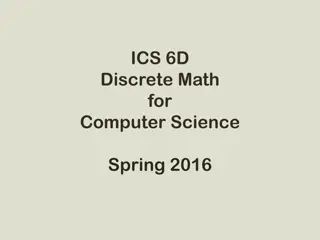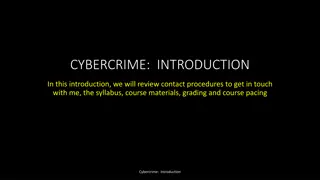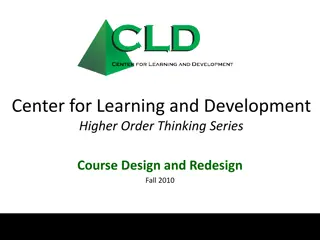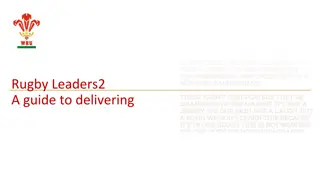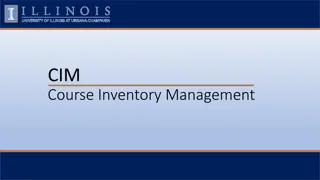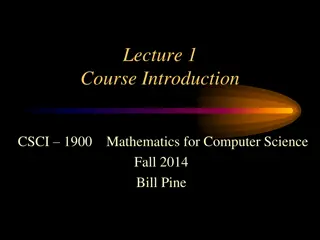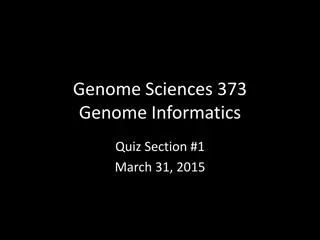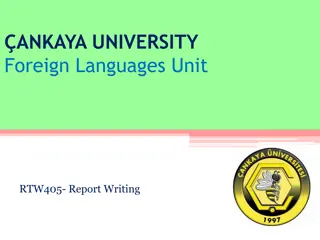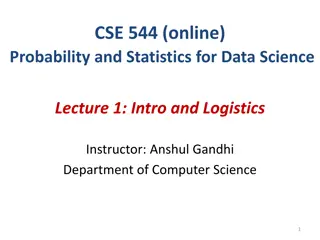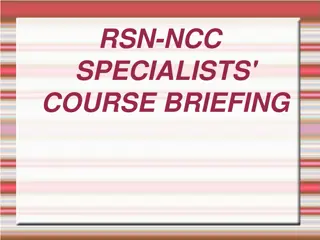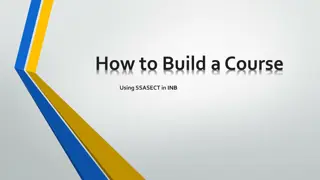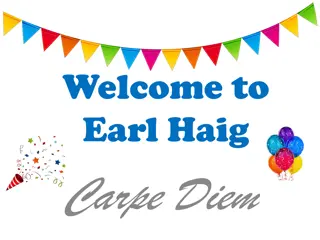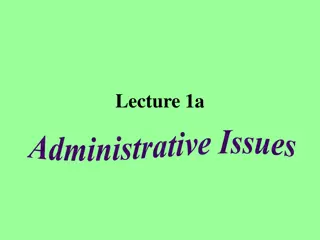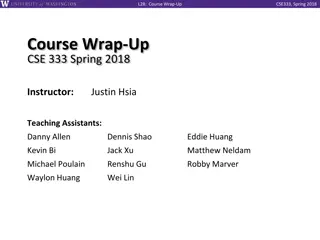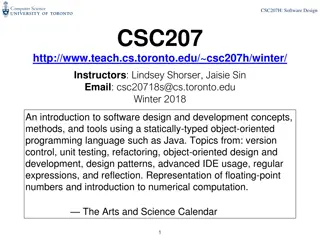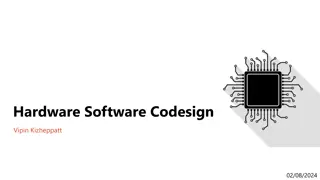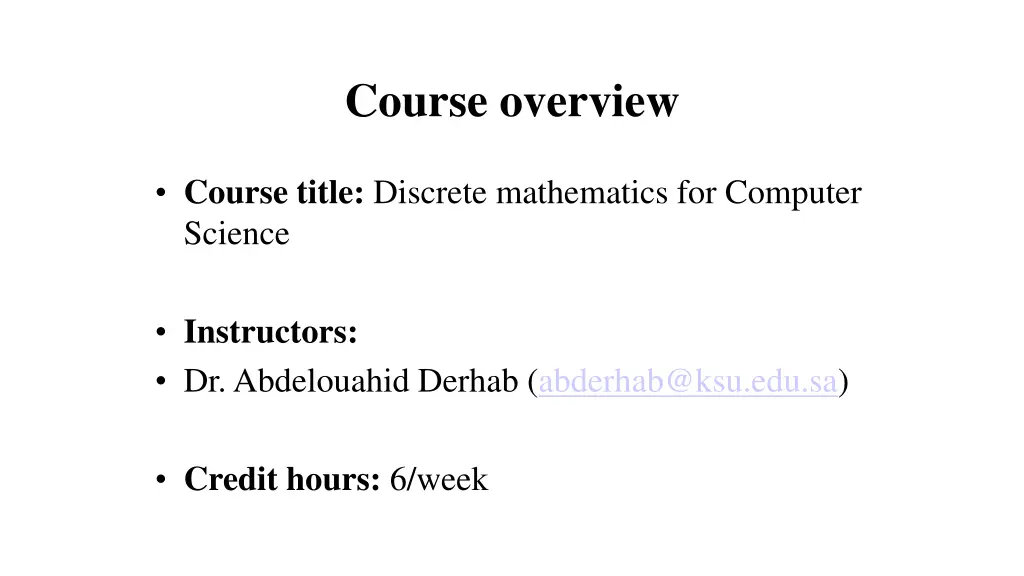
Discrete Mathematics for Computer Science: Overview and Course Details
Explore the course "Discrete Mathematics for Computer Science" instructed by Dr. Abdelouahid Derhab. This introductory course covers foundational topics such as sets, sequences, logic, relations, counting, graphs, and trees. Students will develop problem-solving skills and discover how discrete mathematics is essential for designing efficient algorithms and systems. Check out the prerequisites, course goals, outcomes, recommended textbooks, grading criteria, and communication notes provided in this comprehensive overview.
Download Presentation

Please find below an Image/Link to download the presentation.
The content on the website is provided AS IS for your information and personal use only. It may not be sold, licensed, or shared on other websites without obtaining consent from the author. If you encounter any issues during the download, it is possible that the publisher has removed the file from their server.
You are allowed to download the files provided on this website for personal or commercial use, subject to the condition that they are used lawfully. All files are the property of their respective owners.
The content on the website is provided AS IS for your information and personal use only. It may not be sold, licensed, or shared on other websites without obtaining consent from the author.
E N D
Presentation Transcript
Course overview Course title: Discrete mathematics for Computer Science Instructors: Dr. Abdelouahid Derhab (abderhab@ksu.edu.sa) Credit hours: 6/week
Prerequisite Engineering Probability & Statistics Data structure
Goals of the course The course is an introductory course in discrete mathematic with emphasis on how this theory can be invoked to develop efficient algorithms and systems. Also, it serves as the mathematical perquisite for many advanced courses (design & analysis of algorithms).
OUTCOMES Students will be able to: discuss and use set theoretic techniques, (operations, Venn diagrams, etc.). solve problems in combinatorics (permutations, combinations, etc..). perform various operations with relations and functions (congruence, methods of proof, induction, recursion, etc..). explain and use the concepts of graphs and trees.
Recommended textbooks Scheinerman, Edward, Mathematics: A Discrete Introduction, 2006, Cengage. Roman, Steven. An Introduction to Discrete Mathematics, 2nd edition, Saunders, NY. Rosen, Kenneth h. Discrete Mathematics and Its Applications, 2 ed, McGraw/Hill Dossey, John A. et al, Discrete Mathematics, 3rd edition, Addison- Wesley, Reading, MA.
Course content Foundations: Sets, Sequences, and Functions Logic: propositional logic, equivalences, predicate logic; mathematical reasoning: rules of inference, methods of proving. Relations Induction and Recursion Counting Graphs and Trees Recursion, Trees, and Algorithms Boolean Algebra
Grading Quizes: 10 points Home work: 10 points Midterm 1: 20 Midterm 2: 20 Final Exam: 40 points
Notes for email communication Your email header must start with [CSC281] Send your email to abderhab@KSU.edu.sa email address. Please write your name and your ID at the end of the email


